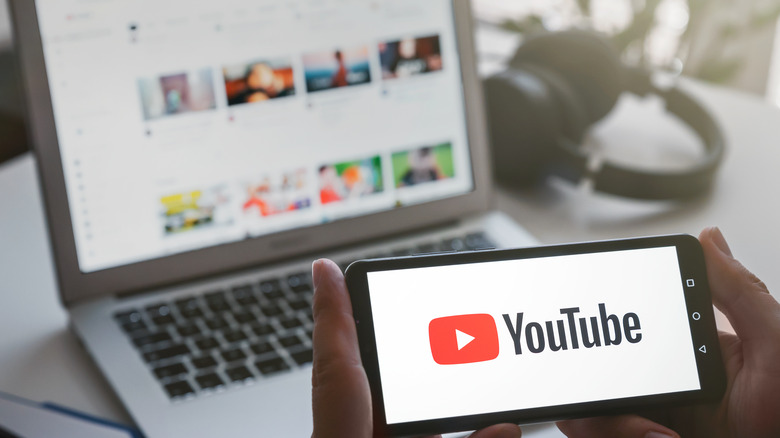Why Experts Want You To Steer Clear Of YouTube For Hay Fever Advice
As the summer begins to wane, the fall season will bring seasonal allergies. The Asthma and Allergy Foundation of America says that more than 24 million people in the United States suffer from seasonal allergic rhinitis (hay fever) as of 2018. Those who have hay fever know that's a misnomer — you're not allergic to hay, and you don't have a fever. Seasonal allergies often have cold-like symptoms, such as a runny nose or itchy eyes, according to the Mayo Clinic. They are the body's reaction to something in the environment, such as pollen from trees, grass, or ragweed. Some people might be allergic to dust mites, mold spores, or pet dander.
Although the Asthma and Allergy Foundation of America suggests using antihistamines, decongestants, and nasal sprays to get relief from hay fever, but you might look for other methods to treat your symptoms. According to a new study in the Annals of Allergy, Asthma, & Immunology, YouTube might not be the best choice. The study analyzed the content of 86 videos about hay fever and found that 31 had misleading information.
What's popular on YouTube isn't necessarily useful
The study in the Annals of Allergy, Asthma, & Immunology found that only 17% of the videos uploaded to YouTube were created by medical specialists, doctors, or healthcare providers. Nonprofessional sources, such as TV shows and YouTube personalities, accounted for most of the videos about hay fever. TV shows and YouTube personalities not only had the most user engagement, but they were responsible for almost half of the misleading videos. In fact, non-healthcare providers accounted for 80% of the misinformation about hay fever. Misleading information garnered the most interaction among YouTube users. Some examples of misleading videos included natural remedies for hay fever or suggesting pressure points and breathing exercises for relief.
The study's authors said that YouTube users might find it hard to determine what's useful and what's misleading because YouTube's algorithms can't make the distinction. Because nonprofessional sources find ways to appeal to and engage the YouTube audience, more misleading videos from these sources can gain popularity. The researchers suggested that YouTube should implement a peer-review or verification process for medical information so that users can be assured that the source's information is reliable and accurate.

